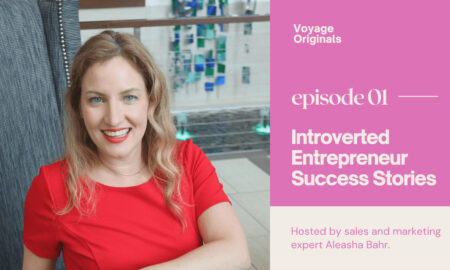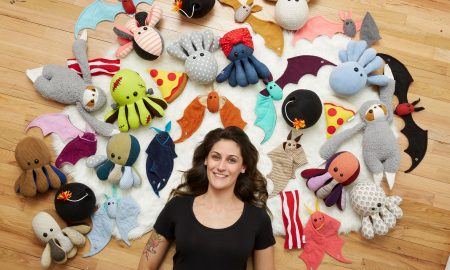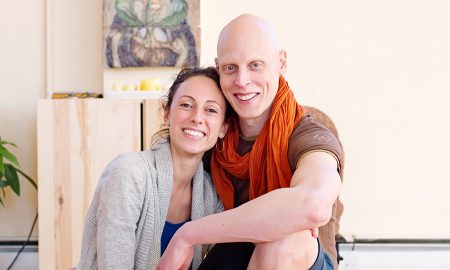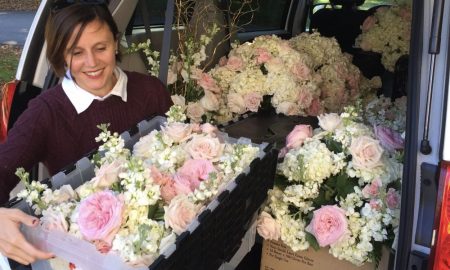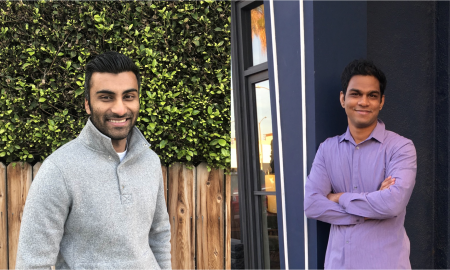

Today we’d like to introduce you to Brooke Fryer and Emmanuel Pothen.
It all started when Daisy, an Indian woman passionate about gender equality, saw a need for women empowerment in oppressive communities throughout her home country. A sewing center developed, providing women from these oppressive environments with a safe space and skill set that would otherwise be unfathomable. Fifteen years and over 3,500 trained women later, we’re ready for the next step. How can we advance this to an even greater level of community impact?
Daisy’s nephew, Emmanuel Pothen, enters the picture. Emmanuel, having grown up in India but based in Gloucester, MA with his family at the time, felt the struggle of these women who had skills to make money, but due to broken societal systems, were unable to earn a living from their work. Emmanuel had the vision and to start a social enterprise that would employ and empower women but it had to meet the needs and values of minimalism and ethical processes. Emmanuel knew he needed a team to launch this idea. Brooke Fryer had worked with Emmanuel as a college intern on some projects and, knowing her entrepreneurial dreams of social good combined with her education and experience in textiles, he knew she would be perfect. A Skype call of invitation, a willingness to initially work hard for very little pay, and Brooke has taken this dream and run with it!
And Anugra began. The name comes from the Hindi word “anugraha” meaning “blessing and grace.” The plan from the beginning was to directly employ our top seamstresses and build a social enterprise. One that will pour back into the business while elevating sewing skills, literacy, fair wages, as well as creating safe spaces to work and grow together.
In the western world, purchase power is a new found glory. We all want to know where each of our products come from and how many hands have handled it. We have the privilege to choose: the choice to participate in transformation and impact. Quality over quantity. We have the opportunity to invest in more than our personal wardrobe or décor, but in lives across the globe, writing a new story for humans just like us, born into different circumstances.
Overall, has it been relatively smooth? If not, what were some of the struggles along the way?
We’re working with women from oppressive environments in the slums of India. For many of them, education was never an option, and for most, this is their first job. We’re combatting the expectation of fast fashion with human development, trading out cheap, mass-produced goods for ancient traditions of hand-loomed textiles. That comes with bumps in the road – higher costs, slower processes, and lots of patience!
Once our products are finished and accounted for, the issue is exposure and sales. Because we are starting with one stateside employee, we have a small capacity to fill the roles of designer, marketer, and sales [wo]man, and so subsequently, there is slow growth on the India side. With a greater audience and customer base, we can expand production, increase the number of women employed, and ultimately bring greater community impact.
Alright – so let’s talk business. Tell us about Anugra – what should we know?
Anugra meets a great need in Indian culture and daily life: female empowerment. We provide a safe space for women from oppressed environments to thrive, educating them, training them to be highly skilled seamstresses. Our employment is an effort to build their self-dependence, allowing them to save and spend what they choose, rather than depending on others for their needs. Anugra strives to restore dignity and equip women with a sense of purpose.
With its minimalistic approach, Anugra also meets a growing need in the Western world for consumer integrity and impact. We believe in the importance and possibility of creating a “just” home; a home filled with goods that have brought freedom and life instead of slavery and despair.
Anyone who hears the full story of Anugra is drawn to the holistic process of it all. We’re not focused only on selling beautiful products, or solely on employing and empowering women, but also on sourcing organic and fair materials and honoring the textile traditions of India.
We craft sustainable and fair-trade home textiles that meet at the crossroads of minimal palette, relevant design, and traditional artistry (i.e. handwoven fabrics, organically dyed and hand-printed).
How do you, personally, define success? What’s your criteria, the markers you’re looking out for, etc?
It can be difficult to keep up with the ever-evolving trends and new lines of seasonal products expected by the industry and consumer. At the end of the day how we measure success will look different from a high-end textile company with excessive margins and high profits; it’s measured by the confidence, self-dependence, and well-being of the women we work with in India. We believe that by using materials made ethically and sustainably, and by creating beautiful, quality products, we’re succeeding. All profits are invested back into the project to multiply positive impact.
When women understand and own the fact that they are more capable, talented, and valued than any system has, and maybe ever will teach them, we are succeeding.
Pricing:
- Hand-loomed organic cotton napkin set ($38)
- Organic, natural indigo-dyed apron ($52)
- All organic hand-loomed throw pillows with super soft recycled fill ($49-65)
Contact Info:
- Website: www.anugra.co
- Phone: 978 381 3871
- Email: info@anugra.co
- Instagram: instagram.com/anugra.co
- Facebook: facebook.com/anugra.co
- Other: pinterest.com/anugraco








Image Credit:
Mark Spooner
Rachel Chang
Brooke Fryer
Getting in touch: BostonVoyager is built on recommendations from the community; it’s how we uncover hidden gems, so if you know someone who deserves recognition please let us know here.









